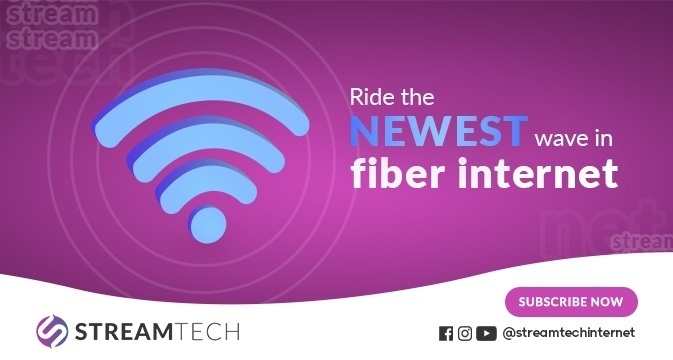A feasibility study is one of the most crucial things for any business to have. It can help determine what are the steps necessary in order to be successful. And will also let you know if your idea is even worth pursuing. This article will talk about what is a feasibility study and why it is so important. Additionally, it will show how a feasibility study can help your company succeed. Moreover, it will also tackle the vitality of connecting to a reliable internet service provider. By then, you can have access to a stable and fast fiber internet for the conduct of your feasibility study.
Businesses of all sizes face uncertainty on a regular basis. Getting clients in the door, persuading them to spend, and making a profit are key goals of a business. However, these might be tough at times but changing up your company mix with new business ideas can reduce this risk. And this is by asking questions beforehand about what will work best for you.
Traditionally, businesses have relied on their gut instincts and experience in order to achieve success even when there is so much risk involved with changes or new ideas. But what about doing things differently? In this regard, it’s best to start with the basics, like conducting a feasibility study.

What is a feasibility study?
A feasibility study is a research method. Its design is to determine the suitability, likelihood, and profitability of any new business idea. It essentially evaluates past and present information in order to predict future performance. And it also helps businesses and individuals make informed decisions about their next step forward.
The term feasibility study is used by a broad range of organizations. And it can be an option for professionals looking to change careers. Additionally, it is applicable to those making small modifications within their current field.
A feasibility study will typically follow some type of market research – which is the first step in any project, idea, or goal that you have. This means conducting proper research on your target market, potential clients, and even competitors if need be. Once this information has been collected, it’s important to analyze it objectively and then look at how it could potentially impact your company, product, or service moving forward.
Why is there a need for a feasibility study?
When starting out on a new initiative, it’s natural for people to assume that their initial concept is going to succeed, and so they did not take the time to conduct a feasibility study. However, by doing this you’re likely going to be making mistakes that could potentially cost you monetarily. Consequently, it’s better to be safe than sorry when it comes to the success of your business.
When conducting research into why businesses still fail despite their best efforts, it became clear that one of the main reasons was due to poor planning, which is something a feasibility study can help with immensely because it will give you a map of what needs to happen next in order for your business idea or concept work successfully.
What does a feasibility study look like?
A feasibility study can include anything from preliminary analysis of your product, service, or idea, as well as a market survey of which customers are likely to buy into your products, how you should communicate with them, and why they will take interest in what you’re offering.
The best way to conduct a feasibility study for your business is to keep it simple but straightforward by answering the following questions:
- Who is my target market?
- Who are my competitors?
- What do I have that is different from them?
- What is going to convince people to choose me over another company?
- How can I best communicate with people that would benefit from what I have on offer?
Once these questions have been answered then you’ll be able to further develop or improve upon your business plan as well as know if there need to be any changes made before moving forward with the idea or concept that you have.

What does a feasibility study include?
Aspects such as location, financial forecasts, marketing strategies, staffing levels, and timelines will all be looked at in-depth with a project identified with the aim of answering the following questions:
- Will this business idea work?
- How can it be done?
- How much will it cost?
- What are the benefits beyond financial gain?
All these can be found in a feasibility report. This document report looks at a suggested solution and provides a feasibility analysis to determine whether it is feasible under particular conditions. It is divided into different sections: the executive summary, an introduction, background information, requirements, evaluation, findings, and recommendations.
What are the types of feasibility studies?
There are several types of feasibility studies. Here is a list of the five major types of feasibility studies:
1. Technical feasibility – This is the evaluation of a project’s or product’s technical needs to determine what technical resources are needed.
2. Legal feasibility – This is a determination of whether or not the proposal satisfies the existing legal criteria for implementation. Consider if a new structure complies with the legislation, whether the site was appropriate, and whether the construction was allowed by the authorities.
3. Operational feasibility – This determines how effectively a project’s execution fits into the organization’s present business structure. The answers to a present problem must be as near to a perfect match with the organizational structure as feasible, and they must be able to be applied to subsequent problems that arise.
4. Schedule feasibility – Before you begin a project, you must ask the following questions: When is the project due? Are there legal obligations related to the schedule? Within what time is the project or product viable? Are the deadlines attainable? This is an evaluation of the product’s delivery timeline and if the product will still be required beyond that period.
5. Economic feasibility – A research is conducted on the project to determine how long it will take to reach the break-even point. It’s akin to doing a cost-benefit analysis. Every project has a cost and knowing when to expect returns is important for financial planning considerations.
How do I conduct a feasibility study?
Conducting a project feasibility study is not a complicated thing. But it will involve some research on your part as well as taking the time to talk things over with other people who are in similar fields. You’ll need to start by looking at what market research there already is out there and if their findings are accurate and how does this fit into your business.
It’s important to take all of your ideas, concepts, and plans for what you’re trying to achieve on board before moving forward because if something doesn’t quite fit, then you won’t be able to work it towards achieving your goals. If there has been proper research conducted, then it should only take an hour or two to go over the findings and see if there are any holes in your plans. However, don’t hesitate to contact a professional for help with this stage of the process if you’re unsure.
Once these initial steps have been completed, then it’s time to look at how you can best present what you have to offer – who is going to benefit from it? How will they benefit from it? What does your brand stand for?
These are just some of the questions that need looking into before putting together something that is more formalized, including specific marketing strategies, as well as organizational structures.

How long should I spend on my feasibility study?
The amount of time that needed on your feasibility study all depends on the scope of your project, how extensive you want to look at what you have to offer, and what is going to work best. However, if you need a general guideline, then the recommendation is to spend between six weeks and three months researching information, reviewing or reassessing your plans, and seeing where any holes may lie before moving forward with anything.
Can I outsource my feasibility study?
Yes! In fact, there are many people who specialize in designing feasibility studies for businesses just like yours, meaning that you’re able to sit back while they do all the hard work for you. Make sure that when outsourcing this process that whoever is performing it has extensive experience within similar fields, technical resources, as well as an understanding of your type of business and what you’re trying to achieve.
There is a lot that goes into a feasibility study but with the right amount of research, including market analysis, then you should be able to understand if there are any issues with your plans or how you go about communicating with those who would benefit from your products, services or concepts. All you have to do is sit back, relax and let the professionals do what they do best. Through their accomplished feasibility study report, you know for certain whether or not now is the right time for your business idea to become a reality.
When should you do a feasibility study?
The best time to conduct a feasibility study is before you actually start your business. But it can also be done later on if during the beginning stages it becomes clear that things aren’t going quite as planned or that there may be difficulties down the road.
What are its benefits to businesses?
Feasibility studies allow businesses and entrepreneurs to make the smartest choice possible when it comes to their next step forward, whether that is choosing to stay within their current industry or expand into a whole new branch of business. Here are the other benefits of doing a feasibility study:
1. It can help you avert the possibility of losing money.
2. It can show a way to make a profit on a new business idea.
3. It demonstrates the practicality of the startup idea, and it proves that there is a real market for your product or service before you begin allocating financial resources to production or marketing.
4. The investment in the time and cost of a feasibility study is small in comparison to the future possible expenses if an entrepreneur were to launch their venture prematurely only to find out they lack sales due to lack of customers requiring that product or service or receive negative feedback about their new business from consumers.
5. It may provide some evidence that either more or less capital will be needed than originally anticipated which makes it easier for the entrepreneur to obtain a business loan.
6. It can lead you to discover that your idea already has a patent or trademark from another company; if so you will know which direction not to go with this venture.
7. It can allow you to receive feedback about whether there is enough of a market in order to justify investing money in the equipment or facility needed for manufacturing and/or marketing goods or services before actually launching your new business venture.
8. It will shed light on marketing techniques because you’ll be able at this point to research costs in terms of promotion and operating expenses.
Additional benefits
9. You may learn that certain required elements do not exist in the necessary quantity or quality creating an opportunity to fill a void in the market.
10. You can learn from your competition and its strengths and weaknesses in order to design a plan that takes advantage of available opportunities.
Feasibility study and its importance to project management
The conduct of feasibility studies are to understand the potential of an idea, including the financial viability. It is an important task in project management that every project must go through at one stage or another before going on any further steps towards its development. Likewise, a feasibility study helps you to answer certain key questions related to your business plan.
The purposes of a feasibility study, when establishing a business plan, are:
1. Determining the economic reasonability of your project
2. Evaluating all possible outcomes and determining which will play out
3. Providing information for decision-making
4. Providing information about the risk involved
5. Identifying who will use this product/service
6. Positioning the competition including existing business
7. Listing goals and objectives
8. Determining the feasibility of a project
Required level of expertise is crucial in the conduct of a feasibility study. You must consult experts who have the knowledge and experience related to your business sector. Of course, this includes the aspect of operational feasibility. This reduces the chances of getting the wrong information about the feasibility of your idea.
A professional team will always help you in making all possible decisions that can positively affect your future success. Your aim would be to make a profitable and sustainable business plan that is capable enough to compete with existing players in this industry.

Major Takeaways
A feasibility study is a great way to see if your proposed project has the potential for success. This is an important measure before you actually go ahead with it. That is whether through experimentation or simply through following advice from experienced professionals. It can help reduce the risk by giving you invaluable information about what kind of challenges may lie ahead. This will allow you to better prepare yourself and even plan accordingly.
If working within established industries isn’t quite your thing, then look into an industry-based feasibility study. This will give you an entrance into unexplored markets where there are plenty of untapped opportunities waiting for your discovery. By conducting one, your business will have the opportunity to make smarter decisions when it comes down to planning future projects which could lead to greater success in the future.
Importance of Internet in Doing Feasibility Studies
Despite the pandemic, Filipinos remain optimistic and dynamic in venturing into business opportunities that can help them thrive. Thus, the recommendation is to execute a feasibility study to determine the viability of such a venture amidst this crisis.
One essential component of any feasibility study is research. The Internet is a highly effective global tool that provides good research sources for data, information, and business networks. With this, a fast and reliable fiber internet connection is necessary in order to implement a feasibility study.

Power the Conduct of Your Feasibility Study with Streamtech
Streamtech, the newest internet service provider in the Philippines, can provide you with the ultimate fiber internet connection at a reasonable price. For as low as P1,499/month, you can get a fiber nternet speed of up to 25Mbps that will make smooth and easy the conduct of your feasibility study for your next business prospect. You can also avail of the Extendifi WiFi Extender that allows you to enjoy the power of Streamtech’s connection no matter where you are.
Subscribe now to one of the best fiber internet providers in the Philippines. Enjoy fast, secure, and reliable fiber internet access. Visit our Official FB Page for more details.









